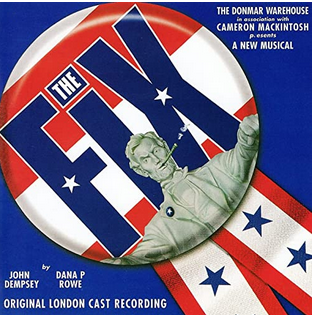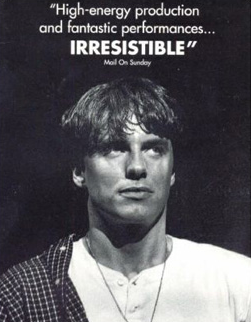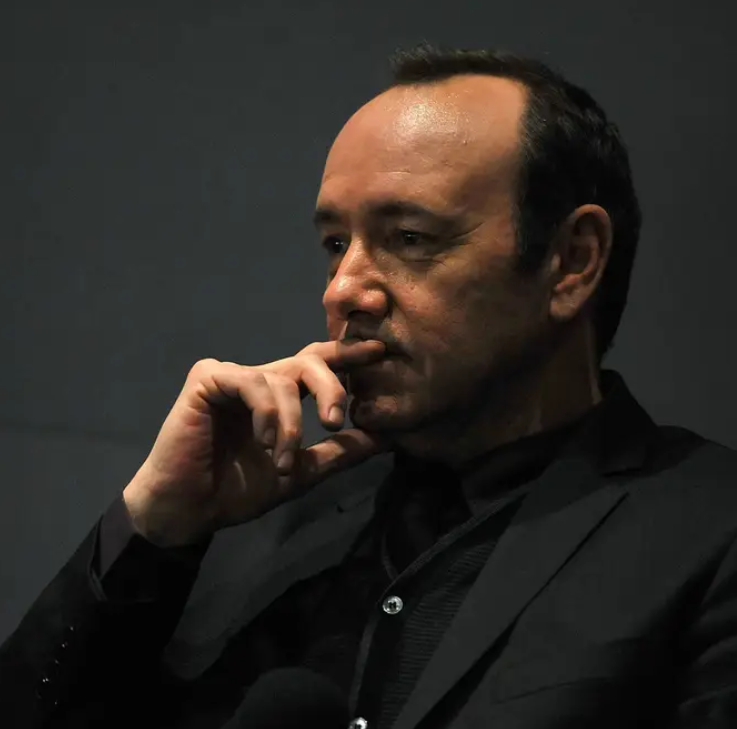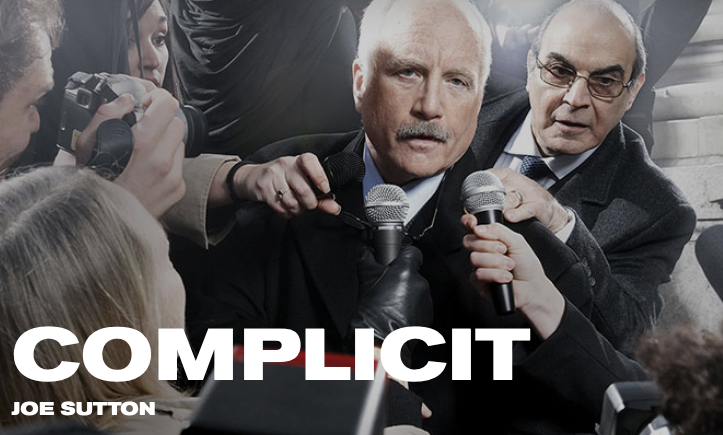.…Or are they the tip of the iceberg?
The revelations about Harvey Weinstein — now jailed for his serious crimes — ignited the #MeToo movement; and a reckoning has followed, that is still being played out even now with British television power player Noel Clarke just exposed as an alleged “sexual predator” (as The Guardian headlined their expose last week), which has already led to his recent BAFTA being revoked and his latest series that was airing being pulled from the schedules.
As always in these stories, others get caught up in the crossfire — when footage emerged of Clarke telling a Dr Who convention audience about John Barrowman’s penchant for exposing himself on and off set, Barrowman started trending on Twitter. What’s curious is that these stories are hardly a surprise: for the last twenty or more years, Barrowman has been (in)famous for doing it.


In a book about Sam Mendes’s tenure as artistic director at the Donmar Warehouse, there’s a story about Mendes going into the male dressing room of his production of the musical The Fix, and there would be Barrowman with his penis in Philip Quast’s ear. And in Barrowman’s own autobiography, he tells (with evident pride) of how Andrew Lloyd Webber wrote to him when he was in Sunset Boulevard, saying that didn’t want Barrowman’s penis to upstage his show, as he routinely used it (out of the audience’s view, but not his fellow cast mates) to play an onstage piano with.
So Barrowman’s story was just the latest confirmation of what seems to be a regular day at the office (or film set or theatre). What has changed? There’s been a cultural shift, when such behaviour is no longer seen as innocent, charming or quirky — on the Noel Clarke video, it is laughed off because Barrowman is a gay man, so its not seen as predatory to the women he exposes himself to (and presumably gay men should be grateful, while straight men should be made to feel jealous — and mustn’t complain, either, or be seen as homophobic). Of course, the Conservative government have long demonstrated that there’s always one rule for them, one rule for the rest of us (the most notable example of was Dominic Cummings’ clear breach of the lockdown rules in going to Durham, and then preposterously claiming he was in need of checking his vision when he and his family made a side day-trip to Barnard Castle, all of which was actively defended by Boris Johnson and his senior cabinet).
But now there’s a levelling of the playing field: unacceptable behaviour is unacceptable behaviour, regardless of context, because the offender can’t possibly know how his victims are receiving it. And it has to be accepted that some people will find a man exposing themselves offensive, regardless of whether he’s trying to be funny or outrageous. Consent is always necessary, irrespective of who is doing it and why; and not all of those who were recipients of his largesse (in every sense of the word) in revealing his most intimate body part to them were willing viewers.
But as always, too, it might be a good idea to keep a sense of perspective; Barrowman’s offence, if offence was caused, was in plain sight; he made no attempt to conceal it, in fact it was all about NOT concealing it. Clarke’s was more insidious: making student actors reveal THEMSELVES in classes; allegedly filming naked auditions; and accused of groping, harassment and bullying of at least 20 women.
And again, when this behaviour comes to light, it’s usual to hope that these people, who play by their own rules, are the exception, not the rule; that this behaviour is not widespread.

But even as the revelations emerged about Weinstein’s abuses of power, other well-known predators and bullies continued to hide. It took real bravery of other victims to come out from behind the shame many have felt to expose other people who used their power to assert their dominance, like Kevin Spacey. Like many in the theatre industry, I’d heard the stories that circulated about him for years; but no one was brave enough to step forward and own it publicly. He had too much power and celebrity to be challenged.
It gave him immunity; but it also emboldened him to more and more dangerous and outrageous acts, too. But then actor Anthony Rapp came forward and said how Spacey had made sexual advances to him when he was just 14 and in a play with him (Spacey was 26 at the time); Spacey claimed not to be able to recall the event, but instead used it as his coming-out moment:
“If I did behave then as he describes, I owe him the sincerest apology for what would have been deeply inappropriate drunken behaviour. “This story has encouraged me to address other things about my life. I know that there are other stories out there about me and that some have been fueled by the fact that I have been so protective of my privacy.”
And, for the first time publicly, he stated: “I now choose to live as a gay man.”
For Rapp, it was a moment that he could finally put the shame aside and make a difference: He said that he’d done so,
“…not to simply air a grievance but to try to shine another light on the decades of behaviour that have been allowed to continue because many people, including myself, being silent. … I’m feeling really awake to the moment that we’re living in, and I’m hopeful that this can make a difference.”
It provoked others to come forward with their stories, including — for me most shockingly — Harry Dreyfuss, son of actor Richard, when he was an 18-year-old senior in high school, and his father was appearing in a play that Spacey was directing at the Old Vic, in 2008, called (with breathtaking irony) Complicit.

As he wrote,
“I’d come to visit for Christmas Break. It happened one night when the three of us were alone in Kevin’s apartment rehearsing my father’s lines. My father didn’t see, and I didn’t tell him about the incident for many years. Instead, I spent the next nine years telling people the story at parties for laughs.”
But it was no laughing matter. As Harry went on to describe what happened, it was brazen, sexually predatory and outrageous behaviour, particularly as Spacey was pushing the abusive envelope as far as he possibly could: sexually assaulting a young man, in front of his own father, without his father realising it at the time.
As Harry writes,
“What I see now is that when it comes to sexual abuse, there is no such thing as a “minor” assault. And if telling this story will help others speak up, then it is worth it. I also can’t stand that Kevin, in his apology, tried to distract from the real problem here by coming out, and in so doing managed to undermine all the work the LGBT community has done to do away with the association between pedophilia and homosexuality. The fact that he’s gay is not what’s important. Rather, it’s that he has no respect for consent.”
Spacey had come on to him that night, putting his hand on his thigh — and then when he moved seats, Spacey had followed him and done it again. And then a third time. There was no ambiguity or misunderstanding.
“At this point I didn’t think there was anything I could do short of alerting my dad to what was happening. But I didn’t want to start a feud between them. I didn’t want the play to be threatened. This job really mattered to my dad, and Kevin was his boss. And besides, I thought, He isn’t really doing anything wrong…
And then he did. Over the course of about 20 seconds, centimeter by centimeter, Kevin crawled his hand from my thigh over toward my crotch. My mind went blank. Suddenly, he had completed his journey and now he had all of me in his hand. I stopped reading the script and my eyes went wide. I lifted up my head and faced him. Looking into his eyes, I gave the most meager shake of my head that I could manage. I was trying to warn him without alerting my dad, who still had his eyes glued to the page. I thought I was protecting everyone. I was protecting my dad’s career. I was protecting Kevin, who my dad surely would have tried to punch. I was protecting myself, because I thought one day I’d want to work with this man. Kevin had no reaction and kept his hand there. My eyes went back to the script and I kept reading.”
But, when he tells the story in 2017, he’s finally realised something:
“Now having had nine years to process it, it finally is clear to me how wrong Kevin’s behaviour was. Not because of how it made me feel. Again, I think being male, and roughly the same size as Kevin, meant that I never felt physically unsafe. My dad was in the room, and I could have alerted him at any time. It didn’t make me feel traumatized, and instead I spun it into a funny story. Kevin Spacey came on to me! He’s famous! Haha!
And that kind of thinking has to be addressed. I did a lot of mental gymnastics to normalize my experience. For the last nine years, whenever I would tell this story to people who refused to laugh — who insisted that I had gone through something profoundly wrong — I would always try to downplay it so they could just see the funny side.”
And that’s exactly why the Barrowman story matters, too. It’s not just a joke. There could be real consequences for those that he’s assaulted and insulted by showing himself off in the way he has.
As Sweeney Todd in Sondheim and Wheeler’s musical of the men who did him and his wife harm, “Let them quake in their boots– Judge Turpin and the Beadle– for their hour has come.” The Noel Clarke story, just like the Scott Rudin story has already proved, is just the tip of the iceberg.
There are many, many more stories of routine theatrical workplace bullying — particularly in rehearsal rooms but also in theatre production offices across London — that are yet to be told. Again, I’ve heard them myself, direct from sources who were in the room(s) when it happened.
Let them quake in their boots. Their hour is coming.
